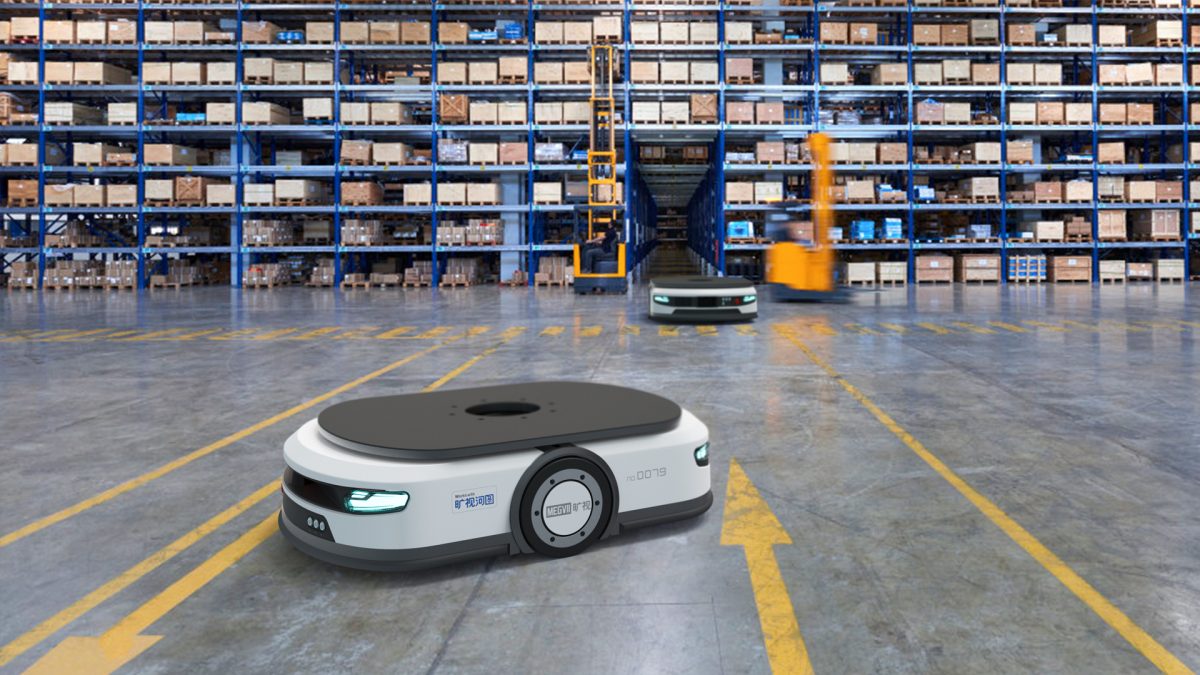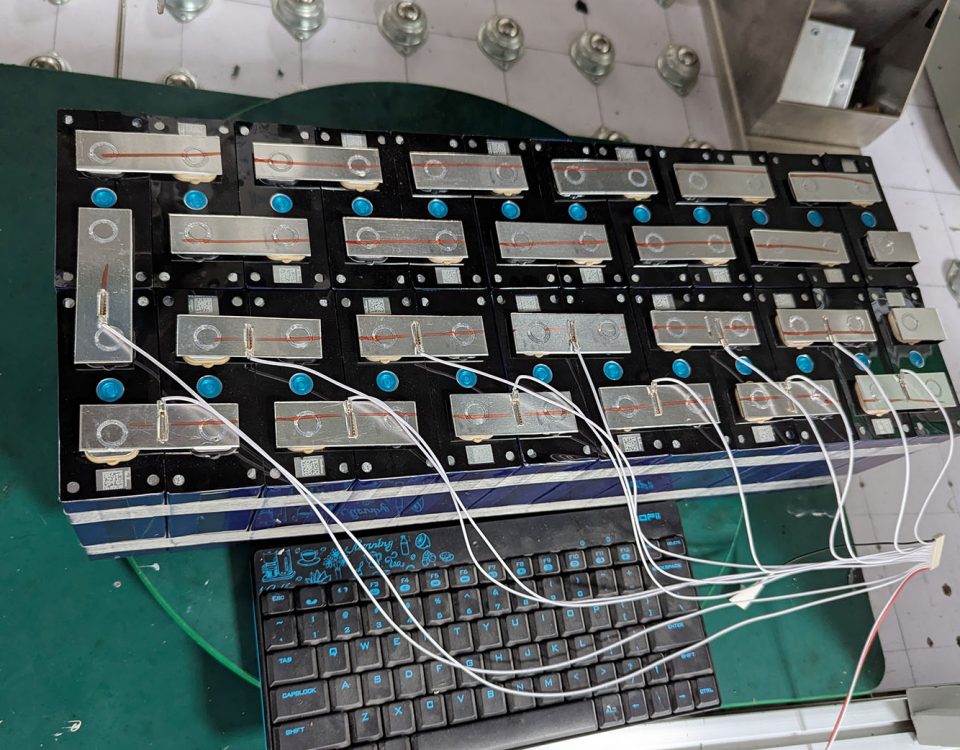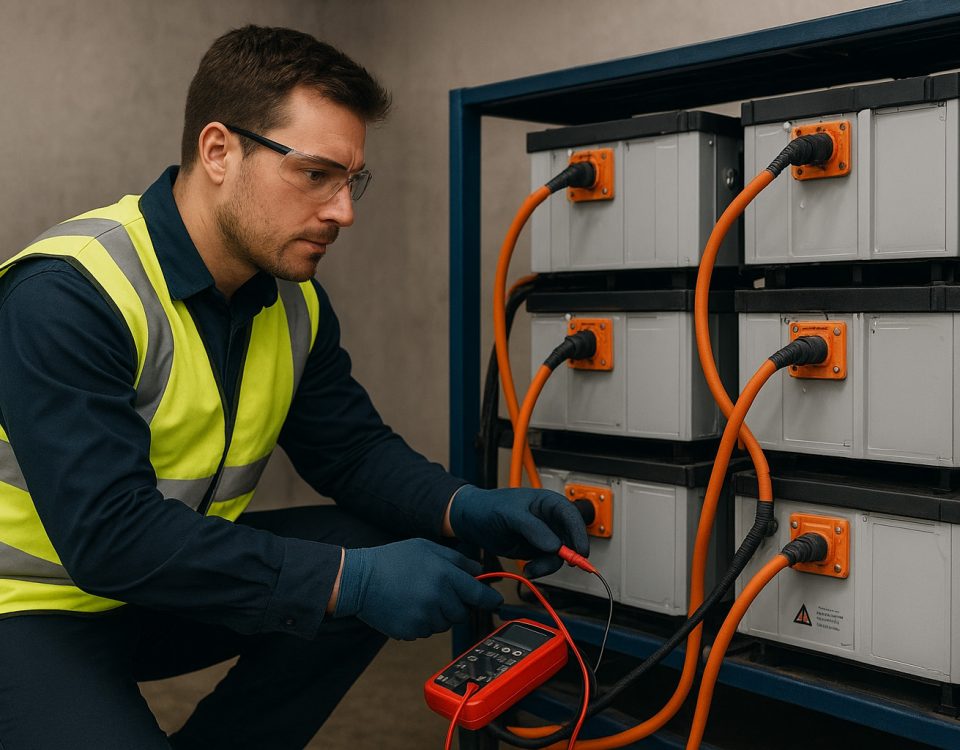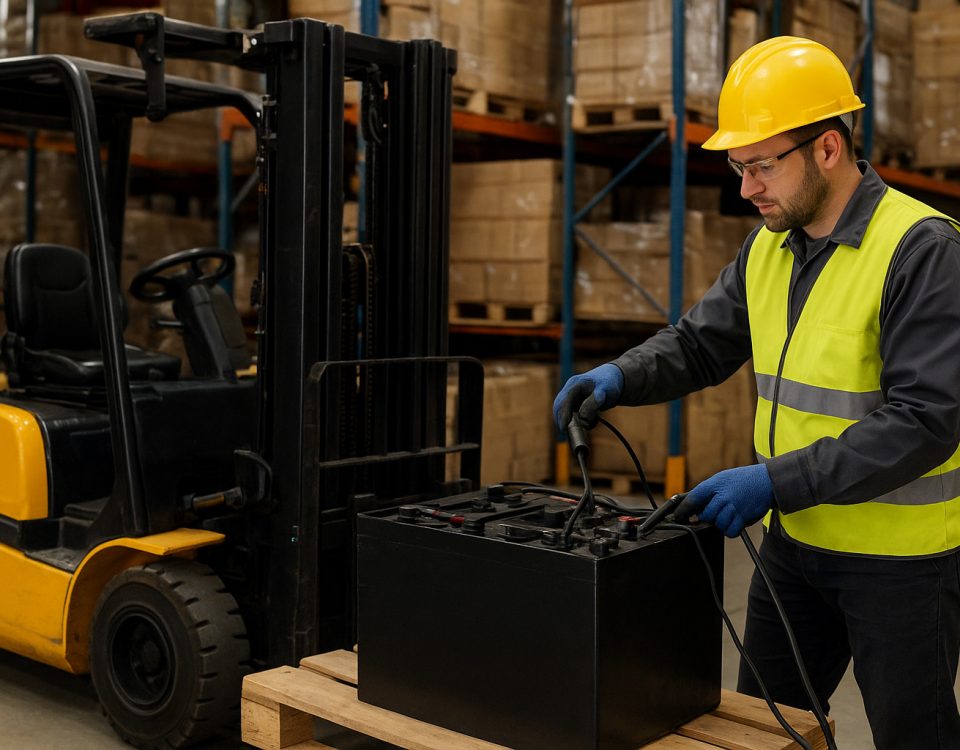Automated Guided Vehicles (AGVs) are rapidly becoming a staple in modern warehouses, manufacturing plants, and distribution centers, providing a seamless way to move goods without human intervention. As industries seek to increase efficiency, reduce costs, and optimize operations, the role of AGVs in material handling is only set to grow. However, the success of AGVs is closely tied to the batteries that power them. Traditional lead-acid batteries are being replaced by lithium-ion (Li-ion) batteries, marking a significant shift in AGV technology. This article explores how lithium batteries are revolutionizing AGVs, enhancing performance, reducing operational costs, and paving the way for a more sustainable future.
The AGV Revolution: A New Era of Efficiency in Logistics
AGVs have transformed the way materials are transported across warehouses and factories. These autonomous vehicles are guided by predefined paths, laser sensors, or magnetic strips, and they are used for tasks such as transporting goods, picking and sorting, and inventory management. However, the efficiency and operational cost-effectiveness of AGVs largely depend on the power source they use.
Historically, many AGVs relied on lead-acid batteries. While these batteries were cost-effective initially, they came with significant downsides: frequent maintenance, limited operational hours, slow charging times, and shorter lifespans. This is where lithium-ion batteries come in, offering a host of advantages that make them a perfect fit for AGV applications.
Why Lithium Batteries are the Future for AGVs
Lithium-ion batteries are quickly becoming the preferred choice for AGVs due to their numerous benefits over traditional lead-acid options. Here are the key advantages:
1. Longer Lifespan and Durability
Lithium-ion batteries have a much longer lifespan than lead-acid batteries. While a lead-acid battery typically lasts around 1,000 to 1,500 charge cycles, lithium batteries can last 3,000 to 5,000 cycles, which translates to a much lower cost of ownership over time. This extended lifespan reduces the need for frequent battery replacements, offering substantial savings in both maintenance costs and downtime.
2. Faster Charging Times
One of the most significant advantages of lithium-ion batteries is their fast charging capabilities. While lead-acid batteries can take up to 8 hours to fully charge, lithium batteries can be charged in as little as 1-2 hours. This means AGVs can spend less time idle and more time performing tasks, significantly improving operational efficiency.
3. Higher Energy Density
Lithium batteries offer a higher energy density compared to lead-acid batteries. This means that they provide more power with less weight and size, which is a critical factor for AGVs that require compact, lightweight power sources. The higher energy density also means AGVs can operate longer on a single charge, making them more productive and less dependent on charging stations.
4. Lower Maintenance Requirements
Lithium batteries are virtually maintenance-free. Unlike lead-acid batteries, which require regular topping up with water and occasional equalization charging to maintain performance, lithium batteries require no maintenance beyond regular inspections. This makes them easier to manage and reduces labor costs associated with battery upkeep.
5. Improved Safety Features
Lithium-ion batteries are equipped with built-in safety features such as Battery Management Systems (BMS), which help prevent overcharging, overheating, and deep discharge. This ensures the safety of the AGV and the surrounding environment. In contrast, lead-acid batteries can be hazardous if mishandled or if the battery case is compromised.
6. Sustainability and Environmental Impact
Lithium batteries are more environmentally friendly than lead-acid batteries. They contain fewer toxic materials and are more efficient in terms of energy storage. Additionally, as industries are becoming more aware of their environmental footprints, switching to lithium batteries aligns with the growing trend toward sustainability. Lithium-ion batteries also have higher recycling rates, which makes them a better long-term solution for both the environment and businesses.
Challenges and Considerations for Lithium Batteries in AGVs
While lithium batteries offer significant advantages, there are some considerations for companies looking to implement them in their AGVs:
1. Initial Cost
The upfront cost of lithium batteries is higher than lead-acid alternatives. This is a key factor that businesses must weigh when considering the switch to lithium. However, the long-term savings in maintenance, energy costs, and battery replacements typically offset the initial investment.
2. Temperature Sensitivity
Lithium batteries can be sensitive to extreme temperatures, particularly in very hot or cold environments. This can affect their efficiency and lifespan. In cold conditions, lithium batteries may experience reduced performance, while excessive heat can shorten their life cycle. To mitigate this, many AGV manufacturers incorporate temperature management systems to keep the batteries within optimal operating conditions.
3. Charging Infrastructure
AGVs powered by lithium batteries may require specialized charging infrastructure, particularly if businesses are upgrading from lead-acid batteries. This includes fast chargers, docking stations, and monitoring systems to track battery health and charging status. The investment in this infrastructure is crucial to fully leveraging the benefits of lithium-ion technology.
How Lithium Batteries Impact AGV Operational Efficiency
The integration of lithium batteries in AGVs directly impacts several key operational areas:
1. Increased Uptime and Productivity
With faster charging times and longer operational hours, AGVs with lithium batteries can work more efficiently, reducing downtime. This leads to higher throughput in warehouses and manufacturing plants, improving overall productivity.
2. Cost Savings
While the initial investment is higher, the reduced maintenance needs, longer lifespan, and energy efficiency of lithium-ion batteries lead to significant cost savings over time. Businesses can expect a lower total cost of ownership compared to traditional lead-acid batteries.
3. Scalability and Flexibility
Lithium-ion batteries allow businesses to scale their AGV fleets more effectively. As the demand for automated solutions grows, the ability to deploy AGVs that can charge faster and last longer provides businesses with greater flexibility in managing their operations.
RICHYE: Your Trusted Partner for AGV Lithium Battery Solutions
As the demand for efficient and reliable AGV solutions continues to rise, RICHYE, a professional lithium battery manufacturer, stands out as a trusted partner in providing high-performance batteries for automated guided vehicles. RICHYE specializes in producing a wide range of lithium-ion batteries that are designed to meet the unique needs of AGV manufacturers.
From energy density to safety, durability, and cost-effectiveness, RICHYE’s lithium batteries offer an excellent combination of quality and performance. Their products are built to withstand the rigors of AGV applications, ensuring that vehicles can operate efficiently and safely over extended periods. As a reliable supplier, RICHYE is committed to helping businesses achieve operational excellence with cutting-edge battery technology.
For more information about RICHYE’s lithium battery solutions for AGVs, or to explore collaboration opportunities, visit RICHYE’s website today.
The Future of AGV Technology and Lithium Batteries
Looking forward, the integration of lithium batteries into AGVs is set to play a key role in the continued evolution of automation. As technology advances, we can expect even more powerful, energy-efficient, and environmentally friendly lithium battery solutions. With the rise of Industry 4.0, smart AGVs equipped with lithium-ion batteries will be crucial in creating the automated, interconnected supply chains of the future.
As businesses strive for greater efficiency and sustainability, lithium-ion batteries will continue to be at the heart of the AGV revolution, helping industries unlock new levels of productivity, safety, and innovation.




